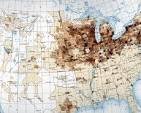Fun stuff from ww I era.



The German conspiracy in American education : Ohlinger, Gustavus, 1877- : Free Download, Borrow, and Streaming : Internet Archive
Book digitized by Google from the library of University of California and uploaded to the Internet Archive by user tpb.
archive.org

German conspiracies in America : from an American point of view by an American : Skaggs, William Henry, 1861- : Free Download, Borrow, and Streaming : Internet Archive
Includes bibliographical references and index
archive.org

